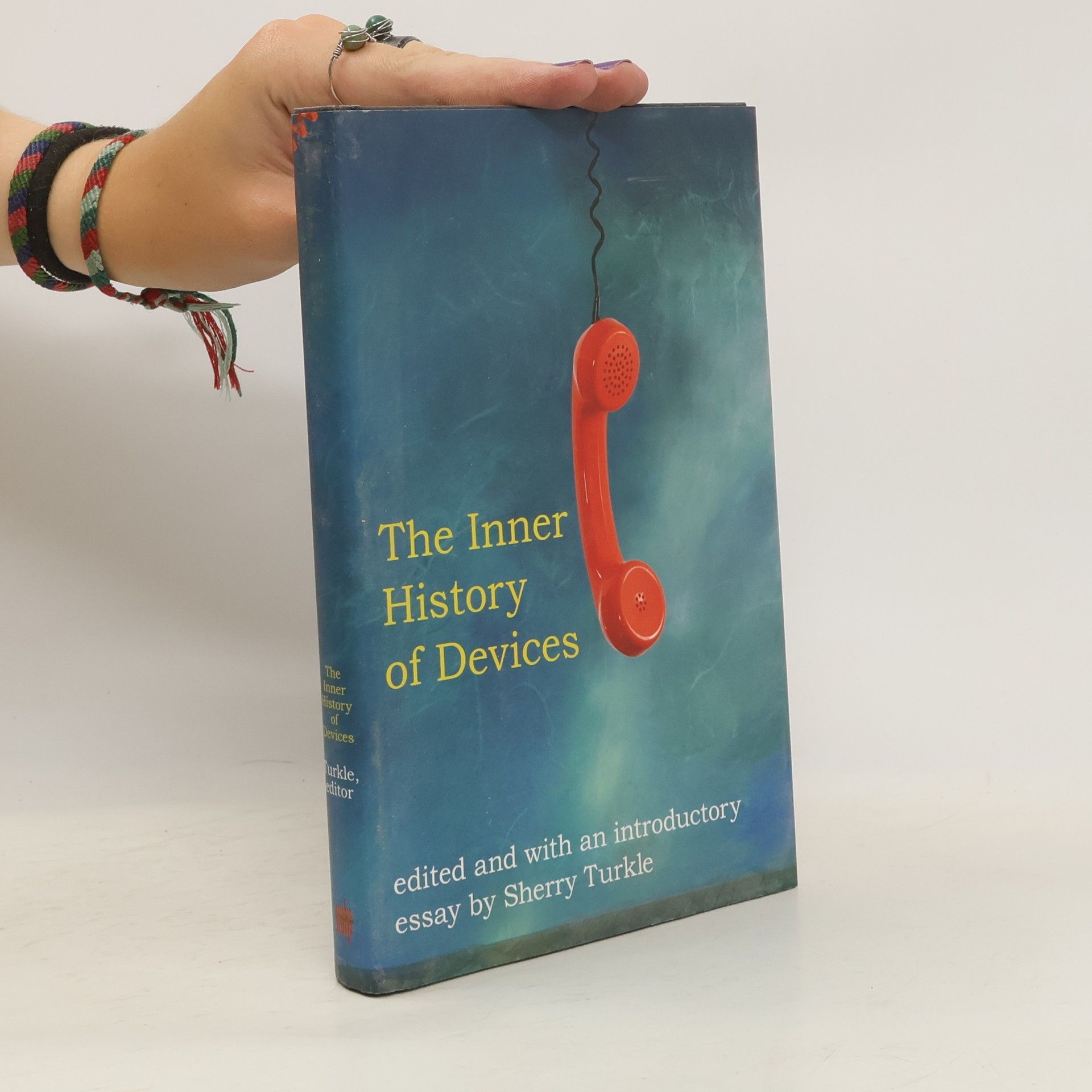-Unsere Gesellschaft postuliert bis heute den in sich zentrierten Menschen mit einer klar erkennbaren Persönlichkeit, einem Wesen, einem Charakter. Das entspricht nicht unserer Natur. Das Internet bietet jede Menge Selbsterfahrung, und eine wichtige Einsicht ist: Ich bin viele.-
Sherry Turkle Bücher
Sherry Turkle beleuchtet die subjektive Seite der menschlichen Beziehungen zur Technologie, insbesondere zu Computern. Als Expertin für mobile Technologien, soziale Netzwerke und Robotik untersucht sie, wie Technologie uns formt und wie wir sie formen. Ihre Arbeit taucht tief in die psychologischen und sozialen Auswirkungen von Technologie auf unser Leben ein. Turkle bietet aufschlussreiche Einblicke, wie technologische Entwicklungen unsere Verbindungen und unser Selbstverständnis im digitalen Zeitalter beeinflussen.






Google, Facebook, E-mail und Online-Games haben unser Leben fest im Griff. Wie wird unsere Zukunft aussehen? Wir wollten sie als smarte „Diener“ unseres Alltags, nun sind sie unsere Herren. Sie sollten uns helfen, Zeit zu sparen, nun sind sie zu Zeitfressern sondergleichen geworden. Wir wollten sie programmieren, jetzt programmieren sie uns. Wenn insbesondere junge Leute hemmungslos in Blogs, Chats, Kontaktforen und Onlinewelten abtauchen, hat das einen tieferen Psychologischen Grund: Menschliche Beziehungen erscheinen zunehmend kompliziert und verletzend. Dafür bietet das Netz Kontakt ohne wahre Intimität, Gemeinschaft ohne Risiko, Nähe mit ausreichendem Sicherheitsabstand. Der moderne Mensch hat oft 100 Facebook-Friends, aber keinen einzigen echten Freund. Computer und Internet geben uns die Freiheit, überall zu arbeiten – in Wahrheit sind wir überall „gemeinsam einsam“. Sherry Turkle zeigt, wie Technologien zunehmend die Funktionsweise unseres Geistes und unser Gefühlsleben beeinflussen. Sie führt uns mit aktuellen Studien und drastischen Fallbeispielen vor Augen, welche ernsten Konsequenzen die gedankenlose Hingabe an die digitalen Verführer hat. Aber sie verdammt die Cyberwelt keineswegs als Teufelszeug. Denn wir haben durchaus die Chance, ihre immer grenzenloseren Möglichkeiten verantwortungsvoll zu nutzen.
1. 1986 pocket_book ROWOHLT Taschenbuch,
Reclaiming conversation. The power of talk in a digital age
- 448 Seiten
- 16 Lesestunden
Argues that today's digital culture is undermining relationships, creativity, and productivity, and pushes for the return of face-to-face interaction among people
"MIT psychologist and bestselling author of Reclaiming Conversation and Alone Together , Sherry Turkle's intimate memoir of love and work In this vivid and poignant narrative, Sherry Turkle ties together her coming-of-age story and her groundbreaking research on technology, empathy, and ethics. Growing up in post-war Brooklyn in a house filled with mysteries, Turkle searched for clues. She mastered the codes that governed her secretive mother's world. She learned never to ask about her absent scientist father. And never to use his name, her name. Empathy was her strategy for survival. Turkle's intellect and curiosity propelled her to the thresholds of defining cultural moments that became life-lessons: she practiced friendship at Harvard/Radcliffe at the cusp of co-education during the antiwar movement, mourned the loss of her mother in Paris as students returned from the 1968 barricades, and faced the extent of her ambition while fighting for her place in the academy as a woman at MIT. There, Turkle found turbulent love and chronicled the wonders of the new computer culture, even as she warned of its threat to our most essential human connections. The Empathy Diaries captures all this in rich detail--and offers a masterclass in finding meaning through life's work."-- Provided by publisher
The Inner History of Devices
- 208 Seiten
- 8 Lesestunden
For over two decades, Sherry Turkle has explored how technology shapes our private lives in landmark studies. In her latest work, she reveals her process of understanding how our creations influence our self-perception, combining the perspectives of memoirist, clinician, and ethnographer to craft an inner history of devices. The narrative covers a range of objects, from cell phones and video poker to prosthetic eyes and dialysis machines. Turkle advocates for an "intimate ethnography" that questions conventional beliefs. One personal computer owner expresses a profound connection, stating, "This computer means everything to me. It's where I put my hope." This prompts Turkle to shift her inquiry from how computers are used to what makes them so deeply meaningful. The work invites readers to listen for deeper insights, presenting stories of an American student reconciling her identities through a cell phone used in Japan, a patient using email to navigate her relationship with her therapist, and a compulsive gambler who prefers the unpredictability of video poker. Through these narratives, we uncover untold stories and recognize that conventional wisdom often falls short in capturing the complexities of our interactions with technology.
The Empathy Diaries: A Memoir
- 384 Seiten
- 14 Lesestunden
"MIT psychologist and bestselling author of Reclaiming Conversation and Alone Together , Sherry Turkle's intimate memoir of love and work In this vivid and poignant narrative, Sherry Turkle ties together her coming-of-age story and her groundbreaking research on technology, empathy, and ethics. Growing up in post-war Brooklyn in a house filled with mysteries, Turkle searched for clues. She mastered the codes that governed her secretive mother's world. She learned never to ask about her absent scientist father. And never to use his name, her name. Empathy was her strategy for survival. Turkle's intellect and curiosity propelled her to the thresholds of defining cultural moments that became life-lessons: she practiced friendship at Harvard/Radcliffe at the cusp of co-education during the antiwar movement, mourned the loss of her mother in Paris as students returned from the 1968 barricades, and faced the extent of her ambition while fighting for her place in the academy as a woman at MIT. There, Turkle found turbulent love and chronicled the wonders of the new computer culture, even as she warned of its threat to our most essential human connections. The Empathy Diaries captures all this in rich detail--and offers a masterclass in finding meaning through life's work."-- Provided by publisher
Reclaiming Conversation
- 436 Seiten
- 16 Lesestunden
Preeminent author and researcher Sherry Turkle has studied digital culture for over thirty years. While she has long been an enthusiast for its possibilities, she now investigates a troubling consequence: our tendency to avoid conversation in various aspects of life—work, home, politics, and love—opting instead for texts and emails that allow us to disengage. This shift has led to silent dinner tables where children compete with phones for parental attention and friends struggle to maintain conversations when few are looking up from their screens. At work, we retreat to our devices, despite the fact that informal conversations enhance productivity and commitment. Online, we often share only agreeable opinions, avoiding the real conflicts of public discourse. The need for conversation begins with self-reflection, which is endangered in an always-connected world where loneliness is seen as a problem technology should solve. This reliance on others for self-worth diminishes our empathy and relationships. The consequences of avoiding conversation are evident: it undermines democracy and business success, while fostering empathy, friendship, love, and learning in our personal lives. However, there is hope; Turkle's five years of research reveal that we can reclaim conversation, the most humanizing act we engage in, to address modern challenges. We possess everything we need to start—each other.

